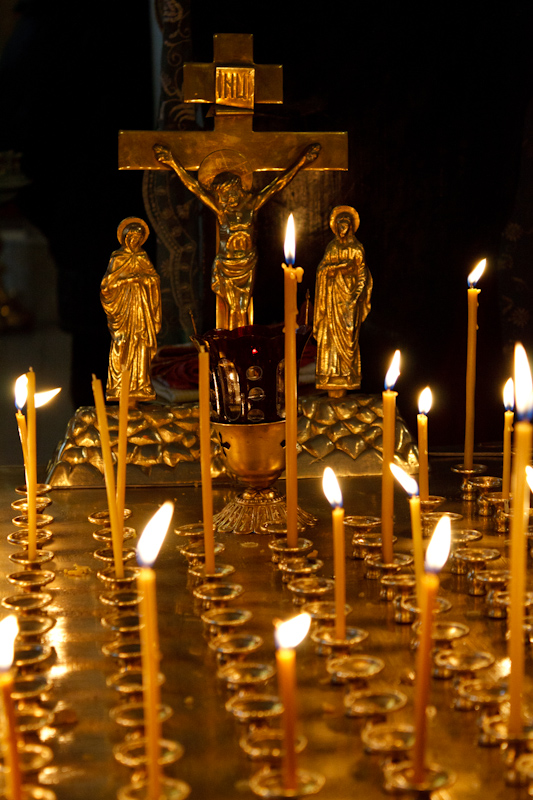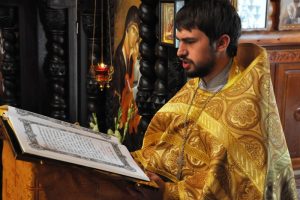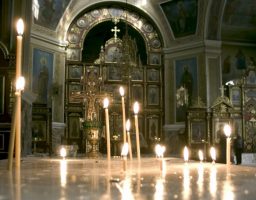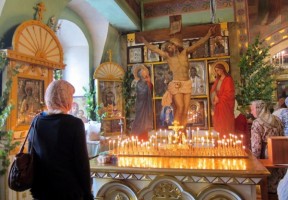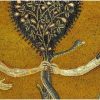It does not happen very often, but one sometimes hears from people: “Why pray for the dead? After all, the Lord Himself told us: ‘In whatsoever things I apprehend you, in those I shall judge you.’ Then what point is there in such prayer?”
Indeed, if these words of Christ are taken to relate to the moment of human death, then prayer for the reposed would be pointless. But do we understand these words correctly?
This phrase does not belong to Scripture, but to the Agrapha; it was recorded by St. Justin the Philosopher. It is consonant with words of Scripture: Watch therefore: for ye know not what hour your Lord doth come (Matthew 24:42). So the point is not that the Lord will catch us in death at one moment or another, but something entirely different: that one cannot indulge in carelessness. Clearly, the departed can hardly be careless in the face of Eternity.
Following death, according to the words of the Holy Fathers (Sts. John Chrysostom, Cyril of Alexandria, Ignatius Brianchaninov, and many others), the soul meets the angelic world (here both the angels of God and demons begin their battle for the soul). This is the soul’s moment of contact with Eternity, but not yet the end.
The soul passes through the toll-houses, which takes a certain amount of time. The partial judgment begins for the soul, but this is not the final determination, for otherwise there would be no Dread Judgment at the Second Coming of Christ. The Lord grants time to the human soul for correction – but the whole trouble is that the soul is not the entire person. Without the body it might be more difficult to sin, but to correct itself without the body is also more difficult. But there is a way out!
The Apostle James commands us: pray one for another, that ye may be healed (James 5:16).
It is not so much the body that is needed for healing, as the soul – for the source of all our ailments is concentrated in it: sin. The Church’s prayer for the reposed is efficacious because it prays for deliverance from the root cause of suffering: sin.
Our departed relatives are not yet complete persons, because the human person is tripartite. One is only a human person when spirit, soul, and body are living. The dead are dead in body, although their souls are living – which means that they still have time for repentance. And we – their still-living relatives, friends, neighbors, and simple brethren in Christ – can help them. Heartfelt prayer and generous charity can indeed perform miracles. The principle miracle, the forgiveness of sins and the salvation of the soul, takes place imperceptibly for us – but it does not thereby lose its significance. For prayer for the repose of our own souls will soon be very, very important to us as well.
Ancestral Saturday, as a day specially dedicated to repentance, also reminds us, the living, about death. We, too, will lie down bodily in the earth, so that our souls might ascend to the heavens. So let us give thought to whether we are ready for this transition or whether our passions will not grant peace to our souls, forever closing the Heavenly Kingdom to us. We still have time – and we need to make use of it.
Let us not wait idly for the last day of our lives to arrive. Rather, let us embark on our path of repentance and correction, praying for our reposed relatives, friends, acquaintances, and all departed Christians, asking the Lord for the strength to correct ourselves. The Lord will grant us this strength; we simply must not lose this gift of God’s grace, but multiply it, increasing in our hearts the unageing Heavenly Kingdom!
Translated from the Russian.













